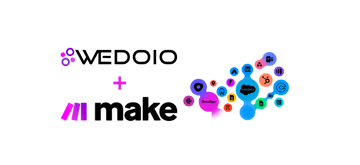Such different types of lead magnets: Part One
Lead generation is the process of attracting customers to your company through various online advertising channels. A lead, in turn, is an appeal to a potential client. This can be an application, a letter by mail, a call, in a word, or any contact with our business. It is often more profitable for a manager to buy ready-made leads, rather than pay for advertising with an unknown result. In this article, we will share our experience with more than 100 lead generation projects and figure out how to make this process as profitable as possible.
Lead generation is a digital marketing tool, the result of which is a new lead contacting your company. A lead is a person who has expressed a desire to make a purchase from you. Notice that desire is key here. The lead is not equal to the buyer. Whoever bought something is a customer. The one who called, or left a request, ordered a callback, wrote a message, and so on, is a lead.
If you want to create a great lead magnet, first, think about what might hook your potential customer. Try to find a headline that will benefit you and consider these quick tips:
- Add promises: consider what the client will receive after signing up,
- Target audience: why you created it and for whom,
- Key points: questions and solutions can be in bullets (or write some benefits),
- Call to action: what customers should do next.
There is no need to force users to fill in many fields. Often, one email is enough.
Make sure your lead magnet is unique and targeted to a specific group of users. The best way to reach your target audience is to be specific in your ad campaign. For example, you can use the following phrases - "for the first 100 registered users" or "if you order today...", etc.
Such different types of lead magnets
Newsletter
A long-standing common way to win a customer is to offer them to subscribe. Is it relevant today? Of course, the best results can be achieved with relevant lead magnets, but we are confident that this method of obtaining a user's contact information is still effective.
Why?
People love to be given the opportunity to choose. If we find your website interesting and want to follow the news, give us the opportunity to subscribe without downloading different PDF files. Many users are simply not used to downloading some kind of material lead magnet.
Cheatsheets
Surely, on tests and exams at school or university, cheat sheets helped everyone at least once. They helped before and they help now when interacting with potential clients. Users are attracted to cheat sheets because they provide them with certain benefits.
Imagine a 3000-5000 word text with the best case studies, practices, images, videos, any visuals. Ask yourself a question and answer it honestly - will you read it to the end? Unlikely so.
Users are more likely to leave their email address or phone number in return for your blog's summary of useful information. Useful information here can be some templates, examples, pdf’s, etc. Think back to how you took a test or exam. Which one was easier: learning paragraphs from the textbook or rewriting the cheat sheet, where the exact answers to the tickets are given? :)
Bonus/Discount
Such a lead magnet for an online store is less common compared to others, but it arouses the greatest interest among customers. And, of course, if you have an interesting idea as a basis for your lead magnet, you can be sure of an increase in the number of your customers.
Let’s take an example from one of the most popular ones - the Amazon online store. It offers huge discounts for those clients, who subscribe to Amazon Prime, which is giving each user a 30-day free trial that includes free delivery and lots of benefits. Basically, Amazon makes a huge per cent of customers subscribe to their Prime version, but it looks like it’s just giving money as a present to its customers. This idea is actually very successful, you can understand it by just googling Jeff Bezos’s net worth :)
Another well-known method of obtaining contact information is to fill out a questionnaire at retail counters to receive a free certificate, discount, etc. It is likely that you have come across many promoters offering something similar. An online store selling physical goods could offer a small extra gift or accessory with the order if the customer signs up for their newsletter, etc.
So lead magnets in certain variants can be used by any business. It is only important to determine how to competently draw up a proposal that would work for you. It also has its own rules.
Checklists
This information-based lead magnet is one of the most effective ones. The tool has a lot in common with cheat sheets, as the essence of both methods is a summary of useful information on one page.
But the difference is that checklists are more effective at motivating customers to take action: "Just do X things to solve Y problems". Users appreciate the instructions, where each stage is scheduled in as much detail as possible.
Another advantage of checklists is that they are the most adaptive/flexible and simplest lead magnet out there today. Any article from your blog in the style of "How to complete X in Y easy steps" turns into this tool in no time.
There are so many more types of lead magnets, which we are going to explain to you in the next chapter. Keep up with reading our new blog posts every day and read a lot about managing online shops, and solutions called integration and automation systems. They help thousands of businesses automate their processes to get higher profits. If you want to learn more about Wedoio Integration solutions, book a meeting with us now and get all of the necessary information for your webshop.



